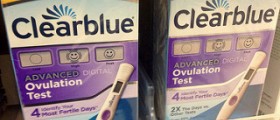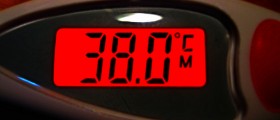
What does an ovulation calendar do?
An ovulation calendar is a handy tool that tells you approximately when you will ovulate. Ovulation calendars basically use a simple mathematical formula, that assumes that most women will ovulate in the middle of their menstrual cycles. You have to enter the length of your cycle, the date of your last menstrual period (LMP), and if you know it the length of your luteal phase. The ovulation calendar will then give you an estimate of when you are likely to be fertile. I personally love ovulation calendars, because knowing when you are likely to ovulate gives you a number of advantages. The first advantage is being able to plan more sex around the time of your ovulation, but before you actually ovulate. To increase your chances of pregnancy, you should have intercourse before a positive ovulation test as well.
What does an ovulation test do?
Ovulation calendars and ovulation tests make a dream combination, because your ovulation calendar will, at the end of the day, not give you any more than an estimate. But ovulation calendars are just precise enough to tell you when in your cycle you should commence using ovulation tests using them for the duration of your cycle is not only pointless, but also expensive. I recommend you start testing around four days before the ovulation calendar says you will be fertile, in order to make sure you will catch the ovulation. Unlikely ovulation calendars, ovulation tests can and will tell you exactly when you are ovulating. To read more about the science behind this, take a look at How do ovulation tests work?













Your thoughts on this
Loading...